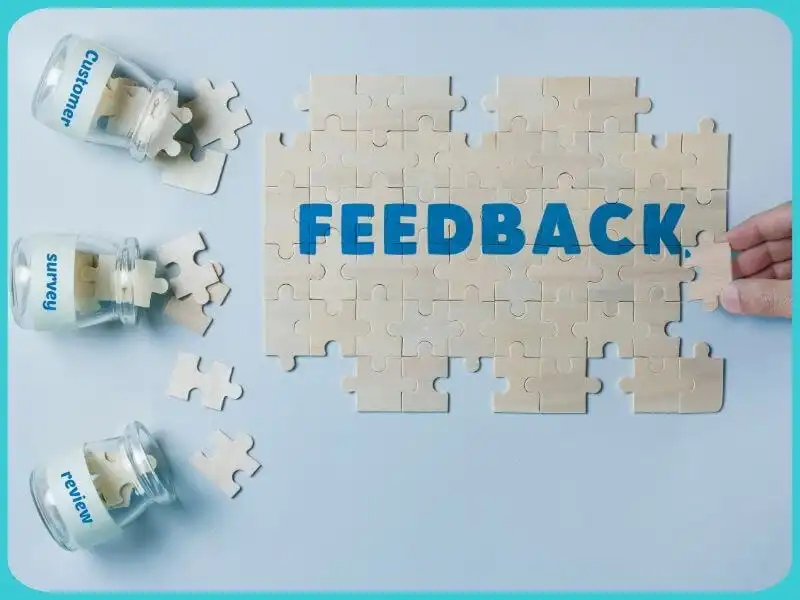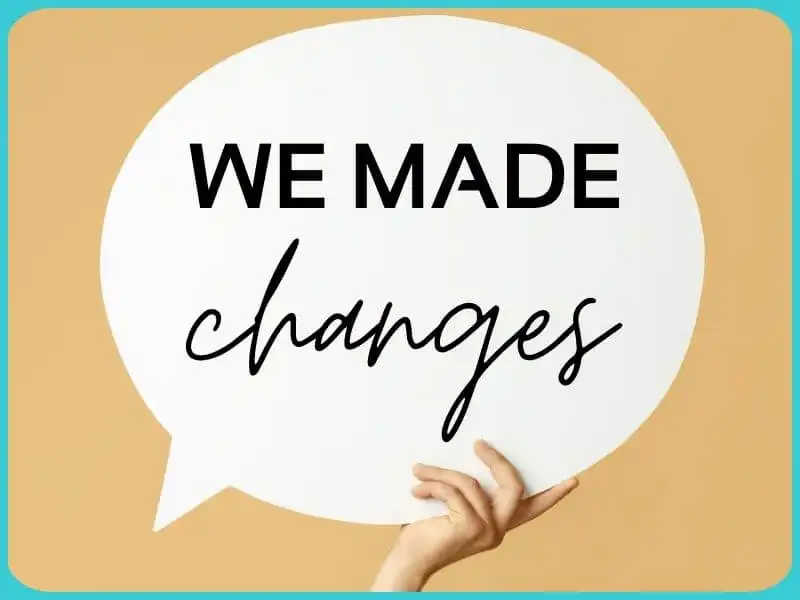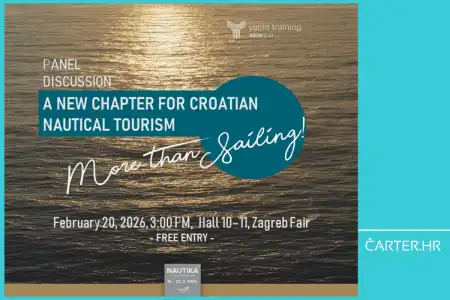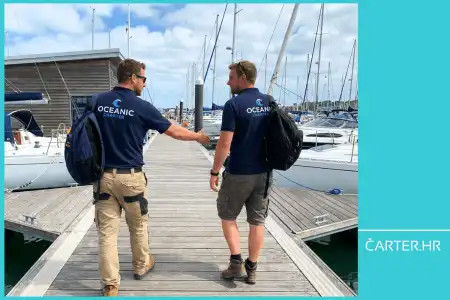
- 12.08.2024.
- News, Marketing, User experience
If you want to stay ahead of the others, you must pay attention to what your guests tell you. Feedback is the secret to transforming your yacht charter business to new heights. Find out why customer feedback is so important, together with some foolproof ways to collect it. Ready to turn your guests' valuable intel into real-world changes?
Feedback is more than just comments from your guests.
It can be a valuable tool for yacht charter companies if you want to enhance your services or directly influence the growth of your business.
But if you really want to stay competitive and even upgrade your guest retention - you need to know what your guests really think about you, your company, and your services.
Value of feedback
Customer feedback is essentially the insights people provide about their experience with your services. This return information helps to understand where your strengths lie and where you can improve.
- Feedback can reveal parts of your service that may not be up to par. Whether it's the booking process, the condition of the yachts, or the crew's behaviour, understanding where you fall short allows you to make necessary adjustments.
- Enhancing overall customer experience is instrumental. By paying attention to what your guests like or dislike, you can tailor your services to better meet their expectations. For instance, if multiple clients mention needing more shade on the deck, consider installing additional awnings or a proper bimini.
If you have complaints about the onboard dining experience, review and revamp the kitchen or dining area. - Broader strategic decisions can be a result of good feedback. Knowing what people value most helps prioritise investments and guide marketing strategy.
Positive feedback on certain destinations can lead to new business expansion opportunities if you are ready to see the bigger picture—such as opening a new base in that area.
If guests frequently commend a crew member's exceptional hospitality, attention to detail, or problem-solving abilities, make sure these qualities are benchmarks for future hires. If people are impressed by the crews' local knowledge or ability to handle unexpected situations gracefully, emphasise these areas in your next training sessions. - Building trust and loyalty among your guests is something that should actually be at the top of your list. When guests feel their opinions are valued and acted upon, they are more likely to return and recommend your services to others. This kind of ongoing dialogue fosters a sense of connection and loyalty.
- Listening to your guests' needs and preferences ensures you provide experiences tailored to their desires.
Offer personalised services based on previous feedback, such as custom itinerary suggestions or discounts at local restaurants for repeat customers.

Enhancing service quality and customer experience
Feedback is the best thing you can get if you want to identify areas needing improvement. When your guests share their experiences, they provide information that can (if used correctly) significantly enhance the quality of service you offer. By implementing their suggestions, you can make improvements that can lead to higher customer satisfaction.
One of the fundamental benefits of feedback is its ability to pinpoint specific parts of your service that need attention.
To measure the impact of these changes, metrics such as Net Promoter Score (NPS) and customer satisfaction scores help you track how well your improvements are resonating with clients and where further adjustments might be necessary.
For example, if guests frequently comment on the lack of modern amenities, consider investing in upgrades such as high-speed Wi-Fi and state-of-the-art sound systems. Sometimes, even a small thing, such as better bedding, is enough.

How to ask for feedback
There are variuos quite effective ways to gather feedback from your guests. Each method has its advantages and potential disadvantages, so it's essential to choose the right mix to comprehensively understand your guests' experiences.
Traditional feedback methods include surveys, feedback forms, and in-person discussions. These approaches offer direct and often detailed information since people can provide specific comments and suggestions. However, they can be time-consuming both for your guests to complete and for your team to analyse.
Examples of traditional methods include:
- Post-charter surveys: Providing clients with a questionnaire at the end of their trip to fill them with their thoughts on various aspects of the service.
- Feedback forms: Having a form available on the yacht for clients to write down any suggestions or issues during their charter.
- In-person discussions: Crew members engaging with clients during or after the charter to gather verbal feedback on their experience.
Digital feedback methods are increasingly popular because they are convenient and able to reach a wider audience more quickly. These include email surveys, social media polls, and online reviews.
They have faster response times and the ability to gather a large amount of data efficiently. However, digital methods may not provide the same depth of insight as traditional ones since clients might give shorter, less detailed responses.
Examples of digital methods include:
- Email surveys: Send a follow-up email with a link to a survey where clients can rate their experience and leave comments.
- Social media polls: Using platforms like Instagram or Facebook to post quick polls asking for feedback on specific aspects of your service.
- Online reviews: Encouraging clients to leave reviews on platforms like Google, TripAdvisor, or your company's website.
However, combining both traditional and digital methods can give you a well-rounded view of client feedback, such as:
- Post-charter surveys + email follow-ups: Offering a detailed survey at the end of the charter and a shorter follow-up email survey can capture comprehensive feedback.
- In-person discussions + social media engagement: Engaging with clients during their trip and continuing the dialogue online can ensure you gather both immediate and reflective feedback.
Making and analysing effective feedback requests
Compelling feedback requests requires an approach that encourages people to share their perspectives.
Construct inquiries that are straightforward and simple to respond to. Timing is also crucial - reach out shortly after their charter concludes while the experience is still fresh in their minds. Avoid overwhelming them with too many requests, as this can discourage participation.
Sample feedback prompts might include: "We'd love to hear your thoughts on your recent charter. What aspects did you particularly enjoy?" or "Your feedback is invaluable to us. Please share your experience to help us enhance our offerings."
Once you've collected the information you need, the real work begins.
Examine both qualitative comments and quantitative data to identify areas for improvement. Prioritise feedback based on its potential impact and the feasibility of implementing changes.
For instance, if multiple clients express a desire for expanded destination options from your side, this could be a high-impact initiative worth exploring. Or, if clients suggest streamlining the booking process, addressing this pain point could significantly enhance their experience.
Implement the identified changes and monitor their effectiveness.
Check whether they successfully meet client expectations and make further adjustments as needed.
Examples of feedback-driven improvements include:
- Expanding your charter fleet to include newer, more luxurious yachts, if possible
- Enhancing onboard amenities based on client preferences
- Optimising the booking system to provide a seamless reservation experience
- Curating specialised itineraries for clients with unique interests or preferences

Communicating changes based on their feedback to your guests
Keeping your yacht charter clients in the loop is also vital. After all, they've taken the time to share their valuable insights – the least you can do is let them know how you're acting on their feedback.
Use various communication channels to spread the word, from newsletters and social media updates to personalised emails. This will show that their opinions genuinely matter and encourage them to continue providing meaningful input.
Imagine a person who suggested adding more flexible check-out times, you might say, "We heard you loud and clear – we're now offering more convenient check-out options to enjoy our vessels and our beautiful coast even more."
Keeping an open dialogue and highlighting the exact and tangible changes you've made based on feedback shows that you're genuinely invested in enhancing the overall experience. This is the way to go if you want to foster loyalty, build trust, and encourage continued engagement.
By actively soliciting input, analysing insights, and swiftly implementing changes, you'll position your yacht charter company as a true partner committed to exceeding client expectations.
If you use your guests' input in the way it's meant to be used, you can act on it and realise meaningful improvements.
If you require help in any part of making such improvements, e.g., running your social media or your newsletter, be sure to contact us.
Categories of trends
- News
- Sale
- Marketing
- SEO
- Web design
- Social media
- Technology
- Regulations
- Management
- Education
- Finances
- User experience
Newsletter
Sign up for the newsletter and receive the latest trends and tips straight to your inbox



